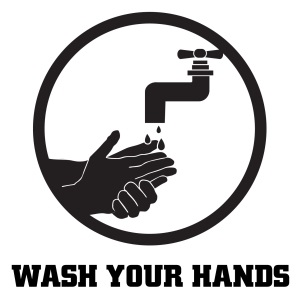
Health24’s Dr Owen Wiese has firsthand experience of hand-washing – or the lack thereof – in state hospitals in the Western Cape.
Only a wet towel
In his own words: "Most of the facilities try their best to keep the environment clean. Unfortunately, due to being short-staffed, this is not always possible.
"Often there are no paper towels available, and a wet towel hanging next to the basin (used by a number of people before and after you) is often the only way to 'dry' your hands, and therefore people tend not to use them. Alcohol spray is widely available, but I tried not to use it as an alternative for proper hand washing, as it dries out my hands.
Read: How often do you hand-wash?
"I found that in smaller facilities where I worked the levels of cleanliness were much better than in the bigger hospitals, but in the hospitals outside the Western Cape where I worked, the situation is much worse."
Why we need to wash our hands
Children like to play outside and get really dirty. They are blissfully unaware of the millions of germs they pick up from the sandpit and petting the family dog. It’s up to parents and kindergarten teachers to show them how to wash their hands and get them in the habit of doing so.
Kids need to wash their hands before meals, after going to the bathroom and when they come inside after playing – and much the same applies to adults.
The reason why we wash our hands is quite simple – hand washing is essential to prevent the spread of germs and help to keep us from getting sick.
Read: Killer germs attack
All of this seems perfectly obvious in the twenty-first century, but we tend to forget that until the middle of the eighteen hundreds the germ theory was unknown. Disease was believed to spread by the presence of a “miasma” – a poisonous vapour, characterised by a foul smell – in the air. (This explains the nomenclature malaria: in Italian mal = bad and aria = air.)
Dr Semmelweis’ discovery
Ignaz Philipp Semmelweis was born in 1818 in Budapest, Hungary, and received a degree in medicine in Vienna in 1844, specialising in midwifery. Soon afterwards he took a post in the Vienna General Hospital (Allgemeines Krankenhaus der Stadt Wien).
At the hospital Semmelweis became interested in puerperal fever (a type of septicaemia known as childbed fever), which caused a high number of deaths among new mothers and babies. Babies were delivered by two groups of people, midwives and medical students, but a curious fact was that the number of deaths among the patients treated by the medical students was considerably higher than among those treated by the midwives.
Read: Doctor or midwife?
The only difference between the two groups was that the medical students worked with dissected cadavers before proceeding to deliver babies. Semmelweis put two and two together and came to the conclusion that cadaveric contamination was connected with puerperal fever. The students clearly transferred something on their hands from the dissected cadavers to the women in labour.
Based on this theory, Semmelweis insisted that doctors and medical students used chlorinated lime solutions to wash their hands before treating obstetrical patients. It was an immediate success and the cases of puerperal fever dropped to almost zero, especially after the hospital started washing medical instruments as well.
The medical establishment of the time did not agree with Semmelweis’ theories and he was ostracised by his peers. He returned to Budapest in 1851, a broken man, and died in an asylum in 1865 at the age of 47.
Change comes but slowly
Aided by the discoveries of people like Louis Pasteur the germ theory slowly became accepted and by the end of the nineteenth century the idea that cleanliness reduced contamination by pathogens and prevented disease had become firmly established.
Read: The name game of deadly viruses
That has not changed, and in the twenty-first century hospitals all over the world are aware of the importance of a germ-free environment, and in most cases no effort is spared to attain the highest standards of cleanliness.
The state of state hospitals in South Africa
However, for a variety of reasons things are not so rosy in South Africa’s state hospitals, and in 2009 the Mail & Guardian published a hard-hitting article titled “SA state hospitals in crisis”.
Also, the following extract from a document released by the DA describes the conditions in some of the worst state hospitals in South Africa:
“At the worst hospitals, the conditions that patients are subjected to frequently amount to a gross abuse of human rights. When patients must spend hours waiting just for a file; when they must bring their own linen; stay in wards infested with vermin and reeking of human waste; or share a bed with another patient, and when hospital buildings are infested with grime and rubbish and one nurse is expected to manage an over-crowded ward single-handedly, then it is patently obvious that the rights of patients are not being respected and that urgent action is required.”
Do you have any experience of a lack of cleanliness in South African state hospitals? Share your experiences with us by emailing us at community@health24.com or in the comments below.
Read more:
Should patients remind health workers to wash their hands?
Anaesthesiologists need to improve hand hygiene
Spy cameras encourage students to wash hands
Image: Wash your hands from Shutterstock




 Publications
Publications
 Partners
Partners










